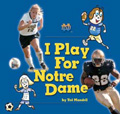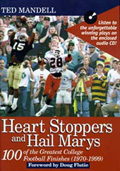 |

OpEd Columns
 |
 |
 |
Get
serious about TV trash: Ban ads for violent shows (Baltimore Sun
5/20/07)
The Federal Communications Commission has sent the
results of its three-year research project on TV violence to Congress.
Thirty-nine single-spaced pages. Detailed footnotes. Well-documented.
And thoroughly gutless.
Here are the conclusions. First: "There is strong evidence that
exposure to violence in the media can increase aggressive behavior in
children." Second: "Congress likely has the ability and authority
to craft a sustainable definition (of violence) for regulating violent
television content." Third: "Actions should be taken to address
violent programming."
According to the FCC, these actions "could" include the industry
committing itself to reducing the amount of excessively violent programming.
Broadcasters "could" adopt a family hour at the beginning of
prime time. Cable and satellite providers "could" allow consumers
to choose which channels they receive instead of forcing pre-packaged
bundles of channels on the consumer.
Here's one more I'd like to add. The FCC "could" acquire a spine.
The commission that jumped on Janet Jackson's breast-flash to institute sweeping fines for broadcasting indecent material (however blink-and-you'll-miss-it brief), can't see the bloody, tortured elephant in the tube.
On April 1, 1970, after years of congressional wrangling, President Richard M. Nixon signed the bill banning tobacco ads on TV.
President Bush, get your pen ready. If the FCC won't forthrightly address the need to do something about the blood-soaked state of television programming in this country, then I will. Here's what the FCC report to Congress should have said:
"Congress should ban advertising for violent entertainment on all broadcast television stations."
No ads for 24. No slick CSI spots. Nada for violent movies and video games too.
"Oh, come on," you say. "That's ridiculous. Ban TV ads for TV shows?"
But why not? Why should I have to tell my kids to close their eyes and ears during a timeout of the Super Bowl so they don't see the 15-second promo of CSI: Miami?
If seducing Americans to buy cigarettes is illegal, shouldn't seducing Americans to watch homicides, sexual assaults and torture be illegal, too?
Well, but watching one violent TV show can't hurt you, right? And neither can smoking one cigarette. But smoke a pack a day ... or watch three hours a day. You do the math.
Violence on TV, at the cinema and in the Xbox might not cause cancer. But studies have shown that by anesthetizing Americans to the effects of guns in the name of entertainment, longtime exposure to visual media in the United States does cost lives.
While the entertainment and media machines feed us daily doses of fear, guns and horrific imagery, the plodding FCC racks its brain to conjure up a vaccine for the violent TV virus that's better than the wimpy V-chip.
Here's another antidote for the FCC to pass along: "The percentage of local television news content dealing with violent crimes must reflect the actual amount of violent crime occurring in that particular TV market."
This time, I'll do the math. In 2005, my hometown of South Bend, Ind., had an annual crime rate of 748 crimes per 100,000 people. That makes South Bend the 117th most violent city in America.
Not great. But in reality, that means that 0.75 percent of the citizens of South Bend were victims of violent crimes in 2005.
Therefore, by my reckoning, only 0.75 percent of each 30-minute television newscast in South Bend should be dedicated to violent crimes. Fourteen seconds - that's it. That's the real world we live in.
But it isn't the violent world we see on television. There isn't a news producer in this country who can imagine the 11 p.m. report containing just 14 seconds of news about violent crimes. That's how wildly distorted your local news has become.
The violent world of TV "could" be sedated for good, if there were fewer "coulds" in the next FCC report and more "courage."
Ted Mandell teaches in the Department of Film, Television, and Theatre
at the University of Notre Dame.
Copyright 2007 Ted Mandell.